Thousands of children live in poverty and grow up in adverse conditions, some much less fortunate than others. Yet there are those who manage to rise above social-economical barriers. What makes those who do so different? It would appear that hope is the crucial propelling factor that distinguishes between those who are bound by poverty and those who manage to rise above their hardships. Undeniably, children who are raised in poorer conditions are faced with the likelihood of academic and social struggles during their development. However, The Pacific Institute’s curriculum provides a basis for optimism.
Valerie Malhomes, currently the chief of Pediatric Trauma and Critical Illness branch at the Eunice Kennedy Shriver National Institute of Child Health and Human Development (NICHD), focuses on the effects of an impoverished environment in her research. She has found that by instilling hope, we can help children foster optimism and resilience throughout the course of their development. It is by no means an easy, simple process; a child needs motivation, planning and determination. The Pacific Institute’s curriculum can teach children ways to do this.
Current research in academia has shifted from reductionist approaches that focus on cognitive deficits, negative outcomes of neural correlates and behavior to one that is proactive. Consistent with Seligman, present approaches focus on prevention and hence are strength-based. They concentrate on a family’s strengths and build upon them to compensate and eventually “overthrow” adverse environmental influences. For example, children of newly immigrated families to Canada and the US, who have a low socioeconomic status, face the psychological and physical struggles of acculturation.
Some successful programs build upon teaching adaptive skills for parents such as leadership and team-work/collaborative skills employed in civic organizations, and appropriate them for the home environment. Early interventions for children also include programs that aim to develop cognitive and executive skills, as well as emotional regulation to promote optimal developmental outcomes. Whereas, interventions for older children/young adults include multi-faceted strategies that focus on meditation, narrative and solution-focused techniques, and approach techniques that educate them to reframe negativity and introduce perspective thinking.
Social and emotional learning (SEL) is a crucial component of childhood development that works hand in hand with cognitive development. This in turn plays a key role in promoting resiliency. It facilitates the formation of friendships with peers and positive relationships with adults, thus marking a pivotal step in the development of a child’s self-regulation.
Many schools have a tendency to focus on academic subjects such as math and reading. This is unarguably appropriate. In addition, schools must focus on social and emotional aspects of behavior as well. This is where The Pacific Institute can help. When the education system only works on strengthening a child’s academic skills, critical problems are overlooked. Take, for example, a child’s anxiety. High anxiety hinders academic performance: If a child is unable to deal with anxiety adaptively, anxiety will interfere with decision-making processes, logical thinking, and the ability to perform well under stressful conditions. Such emotional and behavioral struggles in turn affect classroom dynamics negatively (e.g., interference with other children’s academic progress, and interrupting the teacher’s lesson plans).
The Pacific Institute’s curriculum promotes optimism, determination and hope that in turn help children recognize what is important to them, and help them to then set specific, challenging but attainable goals. Aiding the children of our generation now will bear fruitful outcomes for the future. The Pacific Institute can unshackle children from society’s environmental binds.
References
Maholmes, V., & King, R (2012). Oxford Handbook on Child Development and Poverty. Oxford University Press: New York, NY.
Maholmes, V., (2012) Why study poverty? In Maholmes & King (eds). Oxford Handbook on Child Development and Poverty, Oxford University Press: New York, NY.
Maholmes, V., Nicholson, CE, Haverkos, L., Boyce, C (2008). Research Directions in Child Neglect and Exposure to Violence. Protecting Children. 22, 10-17.
Maholmes, V., & Lomonaco, C (2010) Applied Research on Child and Adolescent Development: A Practical Guide. Taylor & Francis: Mahwah, NJ.
Featured posts
May 16, 2023
May 16, 2023
May 16, 2023





